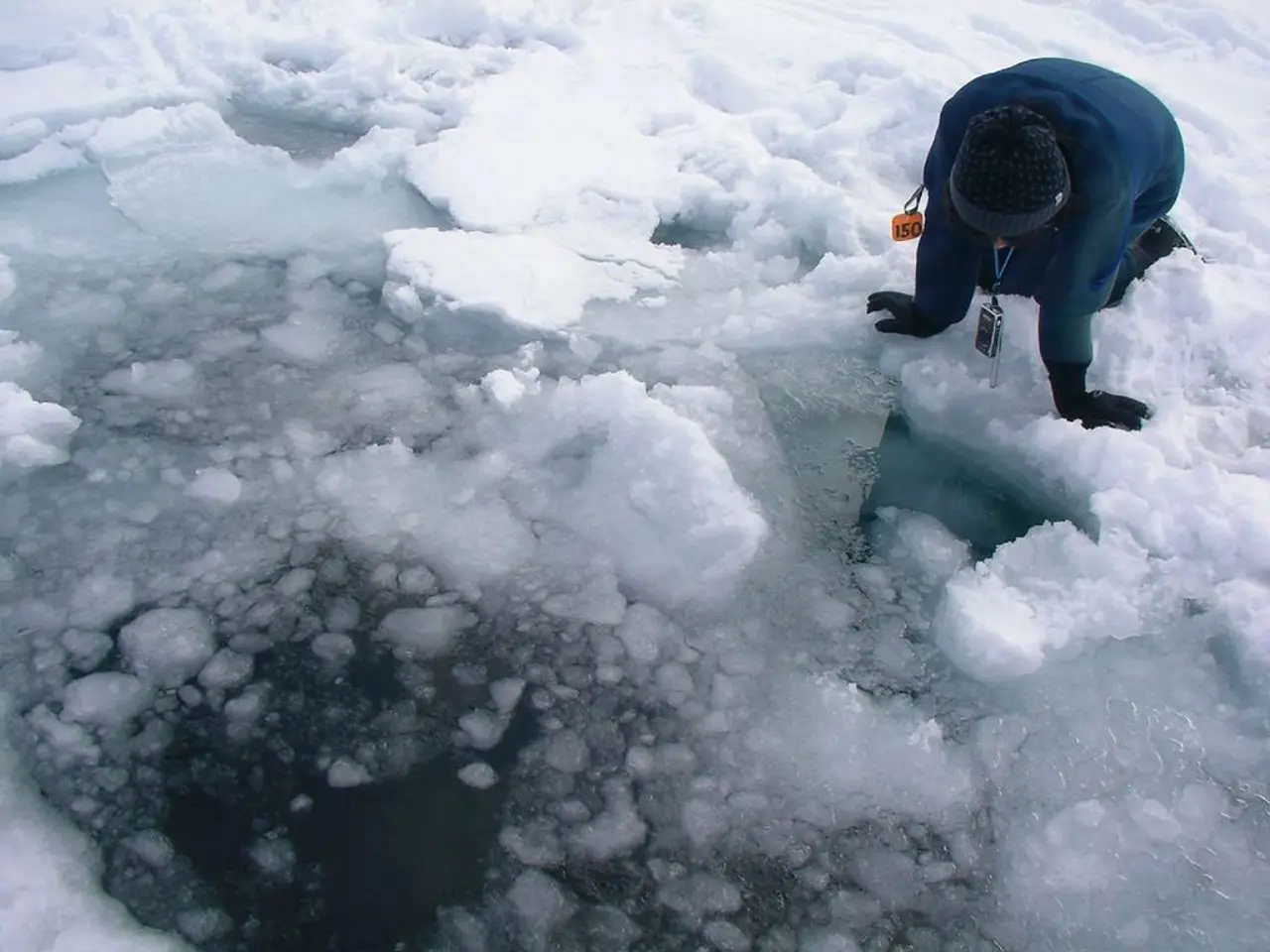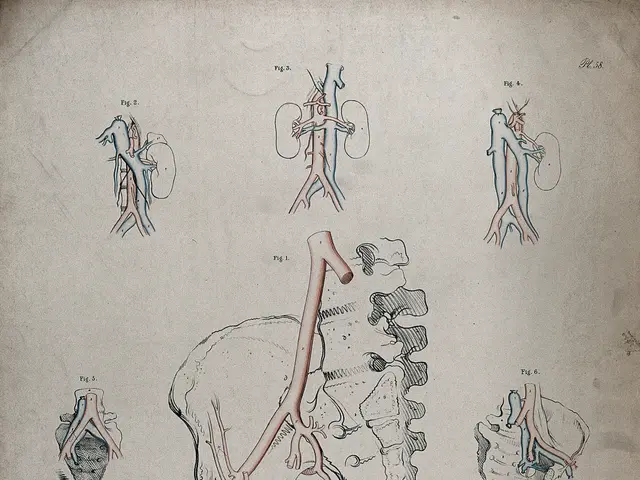Discoveries astound researchers: Remains of a British scientist uncovered in a glacier, six decades after his tragic demise
In a remarkable discovery, the remains of British researcher Dennis Bell, who went missing in Antarctica in 1959, have been recovered after 66 years. The remains were found by a team from the Henryk Arctowski Polish Antarctic Station on King George Island in January 2025.
Dennis Bell, affectionately known as "Tink," was part of a survey party on a glacier at Admiralty Bay on King George Island. On July 26, 1959, during a survey and geological work, Bell tragically fell into a crevasse and was never seen again.
Bell and his companion, Jeff Stokes, had set out with dog sleds to survey and map the largely unexplored island. However, they encountered deep, soft snow, causing the dogs to tire. The weather deteriorated, making it difficult for Stokes, Gibson, and Barton to find the markers Stokes had set up in the snow, leading them to believe that Bell had died.
The glacier's gradual melting and retreat due to climatic and environmental changes exposed the site where Bell's body had been trapped. The Polish Antarctic team discovered the remains on January 19, 2025, among rocks recently exposed by the glacier’s receding ice.
The remains and personal effects were carefully collected and transported on the BAS Royal Research Ship Sir David Attenborough from Antarctica to the Falkland Islands, then flown to London. DNA testing confirmed Bell's identity beyond doubt, providing closure to a six-decade mystery.
Over 200 personal items were also recovered, including broken radio equipment, a torch, ski poles, an inscribed Erguel wristwatch, a Swedish Mora knife, ski poles, and an ebonite pipe stem.
The discovery brought "important closure" for the Bell family, who had never known what had happened to their brother after his fall into the crevasse. Bell's brother, David Bell, stated that the recovery had helped them come to terms with the tragic loss of their brother.
BAS prioritizes safety above all else in Antarctic operations, with extensive training, procedures, and experienced polar field guides. The organisation expressed its condolences to the Bell family and reiterated its commitment to ensuring the safety of all personnel in the Antarctic.
This discovery is a rare example of how glacial melt can reveal long-lost human remains at polar research sites, enabling forensic identification after many decades. It serves as a poignant reminder of the challenges and risks faced by researchers in the harsh Antarctic environment.
Read also:
- Skincare products, including an anti-sebum cream, cleanser, and moisturizer, embolden a positive outlook towards one's skin.
- Fraudulent misappropriation of funds intended for terminally ill adolescents in Munich
- Woman in Texas files lawsuit against Marine, alleging drug-laced beverage with aborted fetus medication
- Instructions for Harmonizing Fitbit with Your Apple Device





